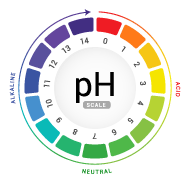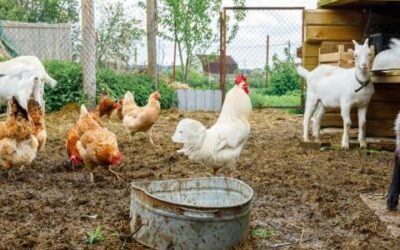Fall Is the Perfect Time For Soil Testing
So much goes in to having a successful garden that when flowers and vegetables are less than stellar it can be crushing. Growth takes sun, water and soil, so a tough growing year means its time to scrutinize each leg of your garden’s stool. If the weather is on your side, you may be wondering about the health of your soil. Knowledge is power! Soil testing will provide important data about your soil’s pH, a major factor in the success of your garden. And with fall coming fast, it’s the perfect time to test for next season.
What Is pH?
 The pH level of your soil is its acidity or alkalinity, measured on a scale of 0 to 14, with 7 indicating neutral. A higher pH level makes other nutrients less available and that can lead to issues with plants that might be mistaken for disease. Some plants demand high acidity – think blueberries, rhodies and azaleas, for example. But in general, a pH of 6-7 — slightly acidic to neutral — is going to suit most home gardens. Check your plants’ needs to be sure. According to Fine Gardening “Every plant has its preferred range of soil acidity, and when the pH level is out of that range, a host of ills may follow.”
The pH level of your soil is its acidity or alkalinity, measured on a scale of 0 to 14, with 7 indicating neutral. A higher pH level makes other nutrients less available and that can lead to issues with plants that might be mistaken for disease. Some plants demand high acidity – think blueberries, rhodies and azaleas, for example. But in general, a pH of 6-7 — slightly acidic to neutral — is going to suit most home gardens. Check your plants’ needs to be sure. According to Fine Gardening “Every plant has its preferred range of soil acidity, and when the pH level is out of that range, a host of ills may follow.”
What Affects pH?
- How your soil was formed. Depending on what kind of rock the soil was developed from, basic or acidic, can determine the pH of the soil.
- Rainfall leaches calcium and magnesium from the soil, and these are replaced by aluminum and iron, which are acidic. High rainfall = more acidity.
- Fertilizers containing ammonium results in acidity.
Test
Soil samples should be taken in the fall for the succeeding year’s garden. Testing can be done through the cooperative extension in your state (Find yours here, or through an independent testing lab.
Changing Your pH Level
Need to lower pH levels? Sulfur, in powder or pellet form is most effective. Elemental sulfur, worked into the soil in the spring will adjust pH after a few months. Aluminum sulfate is another usable form. It can work quickly but be careful — it’s strong and can burn plants roots.
Need to raise your pH? Apply limestone in the fall or winter, says Savvy Gardening. A two to three-month lead time for planting will allow it to do the work of neutralizing acidity. Use pure calcium carbonate/calcitic lime, or opt for dolomitic limestone, which includes magnesium — a needed nutrient for those in the East and Pacific Northwest. Wood ashes are alternative option. While it isn’t as effective immediately, it can work well over time.
Backyard Chicken Farmer? Use Your Waste
 Using your nutrient-rich chicken waste can boost the health of your garden and provide you with a simple way to recycle bedding. All-natural, recyclable bedding like KOOP Clean™ is highly decomposable and breaks down so there is no loss of nitrogen in the soil, and because it’s made with Sweet PDZ, it acts like a slow release fertilizer (as ammonia neutralizes, it is gradually released as nitrogen) or compost enhancement. This slow release method helps regulate the soil, so it doesn’t disrupt pH levels. Learn more about KOOP Clean Chicken Bedding benefits.
Using your nutrient-rich chicken waste can boost the health of your garden and provide you with a simple way to recycle bedding. All-natural, recyclable bedding like KOOP Clean™ is highly decomposable and breaks down so there is no loss of nitrogen in the soil, and because it’s made with Sweet PDZ, it acts like a slow release fertilizer (as ammonia neutralizes, it is gradually released as nitrogen) or compost enhancement. This slow release method helps regulate the soil, so it doesn’t disrupt pH levels. Learn more about KOOP Clean Chicken Bedding benefits.




